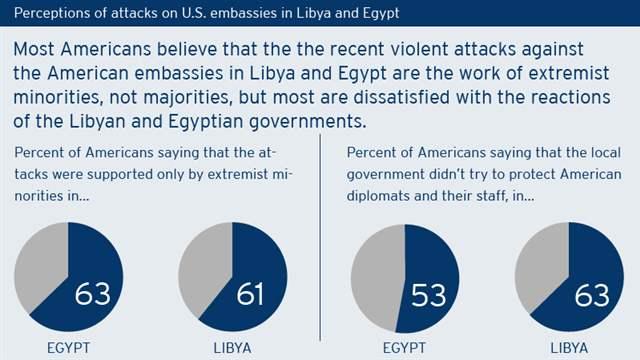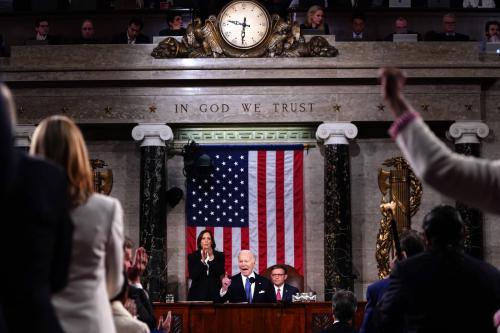In mid-September 2012, attacks on US diplomatic missions in Libya and Egypt—countries going through revolutionary processes that began with the Arab Spring—shocked Americans in the midst of a closely fought presidential campaign. The very different governments of Libya and Egypt, both new and untested, had to formulate responses to the attacks, which immediately fed in to the American political process. The University of Maryland’s Anwar Sadat Chair and the Program on International Policy Attitudes sought to learn what have been the American public’s first impressions of these events, and how attitudes on other issues in the region may have changed.
Highlights of key findings from the poll include:
1. Most Americans believe that the the recent violent attacks against the American embassies in Libya and Egypt are the work of extremist minorities, not majorities, but most are dissatisfied with the reactions of the Libyan and Egyptian governments.
2. There is support for decreasing aid to Egypt, but not for stopping it.
3. A majority of Americans believes that an Israeli strike on Iran’s nuclear facilities would result in a drastic oil price increase, Iranian attacks on American bases, and a worsened American strategic position in the Middle East.
4. Majorities of the American public support increasing sanctions on Syria and imposing an international no-fly zone, but overwhelmingly oppose bombing Syria, arming rebels, or sending troops to Syria.





